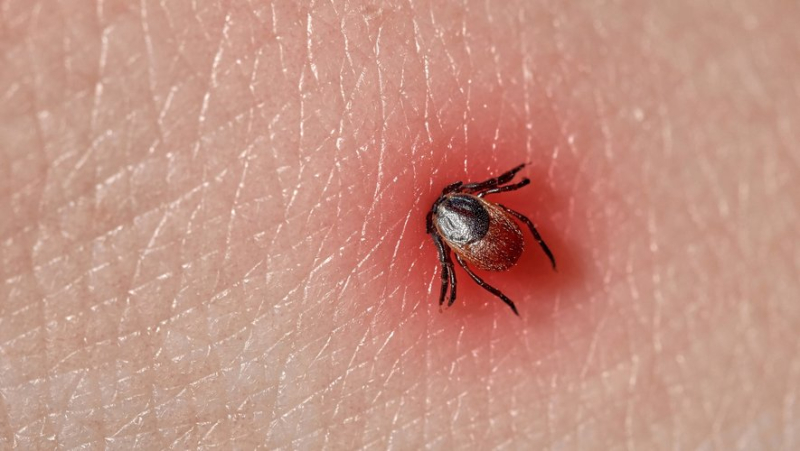Powassan Disease: What is this emerging tick-borne virus ?

Powassan : quel est ce virus émergent transmis par les tiques ?
A recently published case study highlights the growing importance of Powassan virus, a tick-borne disease in Canada. This research underscores the need for clinicians to be vigilant about this potentially deadly infection.
This is a case presented in the Canadian Medical Association Journal(CMAJ); a 9-year-old boy admitted to hospital with symptoms of fever, neck stiffness and headache that began a week after camping in northern Ontario. Doctors ran extensive tests for a variety of diseases, including Epstein-Barr virus, Lyme disease and bacterial meningitis. All came back negative.
They also sent serology samples to the Public Health Ontario lab for testing. The results came back a few weeks later, after the boy had been treated and discharged from hospital. Diagnosis: The child suffered from the Powassan virus.
Most often mild cases
Powassan disease is a very rare but sometimes serious condition that is transmitted to humans by infected ticks. The virus can be transmitted within 15 minutes of a bite, and symptoms can develop 1 to 5 weeks later.
Most people who are affected have – as did the 9-year-old – flu-like symptoms. But in some people, the disease can cause encephalitis (inflammation of the brain) or meningitis.
Most cases are mild. But, “among people with severe disease with severe symptoms, one in 10 dies “, explains the National Collaborating Centre for Infectious Diseases in Canada. "Nearly half of people who survive (a severe form of) the disease suffer long-term neurological problems such as recurring headaches, loss of muscle mass, and memory problems."
What treatments ?
There is no vaccine or specific medication for Powassan disease. People who do not develop symptoms or only mild symptoms do not require any treatment. However, those with severe symptoms must be hospitalized to receive intravenous fluids (hydration solutions), respiratory support and medications to reduce cerebral edema.




